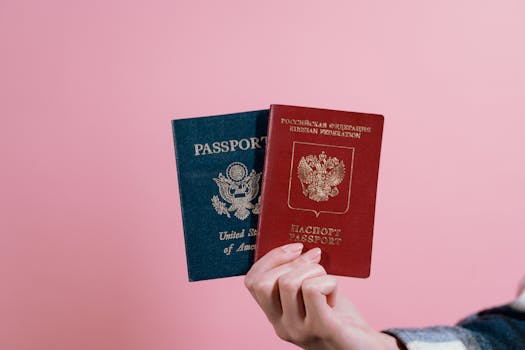Dual Citizenship: Can You Keep Your Original Passport?
One of the most common questions for green card holders thinking about becoming U.S. citizens is: Can I keep my original citizenship and passport after naturalizing?
The short answer is: Yes, in most cases.
The United States allows dual citizenship, but whether you can retain your original nationality depends on the laws of your home country.
This guide explains how dual citizenship works in the U.S., when you can keep your original passport, and what to check before applying for naturalization.
1. Does the U.S. Allow Dual Citizenship?
Yes. U.S. immigration law does not require you to renounce your previous citizenship when becoming a U.S. citizen. You can hold multiple citizenships — legally — as long as other countries involved allow it too.
During the oath ceremony, you’ll pledge allegiance to the United States, but this is not a legal renunciation of your prior citizenship unless you take additional steps.
2. Does My Country Allow Dual Citizenship?
That’s the key question. Each country has its own rules about citizenship.
Here are examples of common countries and their stances:
| Country | Allows Dual Citizenship? |
|---|---|
| Canada | Yes |
| Mexico | Yes |
| India | No (must renounce) |
| China | No |
| Philippines | Yes (with reacquisition process) |
| Germany | Sometimes (case-by-case) |
| Russia | Yes (but must notify authorities) |
If your country does not allow dual citizenship, you may automatically lose your original citizenship when you naturalize as a U.S. citizen — even if you keep the passport.
3. Will the U.S. Take My Foreign Passport?
No. USCIS does not collect or cancel your foreign passport during naturalization. You can keep it — but it’s your home country’s laws that determine whether that passport remains valid.
Some embassies may consider your U.S. naturalization as a voluntary renunciation of your native citizenship. Others will let you retain both.
4. Travel with Dual Citizenship
If you are a dual citizen:
- Use your U.S. passport to enter and exit the U.S. (required by law)
- You may use your foreign passport to enter your other country of citizenship
Dual citizens often enjoy easier travel, more work and residency options, and voting rights in multiple countries — but also have responsibilities in both nations (like taxes, military service, etc.).
5. Are There Risks to Dual Citizenship?
- Some countries may impose obligations, such as taxes or military service
- You could face conflicts of law, especially during international disputes
- You may lose consular protection in your home country as a U.S. citizen
Always consult both U.S. immigration laws and the laws of your country of origin before deciding.
6. What If I Want to Renounce My Citizenship?
If your country requires renunciation, you may need to:
- File a formal renunciation at your home country’s consulate
- Surrender your foreign passport
- Pay any required fees
U.S. law does not require this step — it’s only necessary if your original country’s law mandates it.
Becoming a U.S. citizen doesn’t automatically mean giving up your original passport — unless your country makes you.
The U.S. allows dual citizenship. What matters most is whether your home country does. Before applying for naturalization, check with your embassy or an immigration attorney to understand how dual citizenship may affect your rights.


